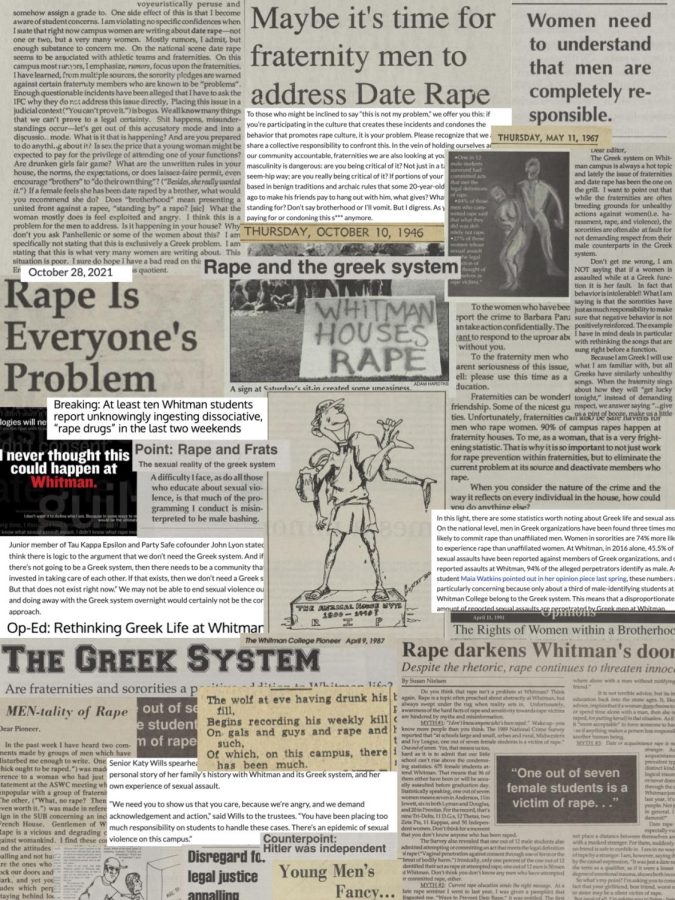In the midst of the ongoing discussion surrounding the college’s accessibility, we have a point that we would like to be very clear about: Fossil fuel divestment is not at odds with economic diversity.
While Divest Whitman is concerned with issues of climate change and environmental justice, the campaign and students within it simultaneously seek to hold our institution accountable for its budgetary and investment practices at large. Divestment campaigners here and everywhere in the U.S. are waking up to the fact that many –– if not all –– of our colleges and universities have become corporatized and thus compromised.
Recent attention toward our college’s admissions and investment processes has situated Whitman as a pertinent example of this dilemma. We have found that promoted institutional ideals consistently clash with our financial policies and practices. Despite advertising a commitment to sustainability, we profit off of investments in the fossil fuel industry. In terms of demonstrating values, the truth is in the budget for colleges. Why don’t our spending choices and investment practices reflect the values we promote?
Divestment has started answering this with another question: Why can’t our finances reflect our values and moral mission? The shift toward corporatization of our college has subsequently prioritized business interests before realization of institutional values.
The reality of running as a business is also behind much of the economic diversity rhetoric. Aligning with contradictions between sustainability ideals and investment practices, the demographics of our institution do not reflect a supposed dedication to diversity and accessibility. Many students have expressed keen frustration with the way administrators and others have framed issues of accessibility on an ultra-practical continuum. It seems we’re being made to believe that we can only be accessible in times of great prosperity. And yet, like divestment, promoting economic diversity is much more of an explicit choice than a set of maneuvers within the market.
Much of the “Accessing Whitman” forum was spent outlining Whitman’s struggle to brand itself in order to keep up with the Joneses (in this instance more prosperous peer colleges). This reasoning suggested that our institution must grow our endowment and increase our collegiate rankings in order to have capital to spare on underprivileged students.
Our administration responds to appeals from students, faculty and alumni asking for financial policies that reflect institutional ideals with rhetoric that feels condescending and dismissive by positing these requests as economically unfeasible. This frame masks the political nature behind spending practices and inhibits a critical examination of financial priorities.


